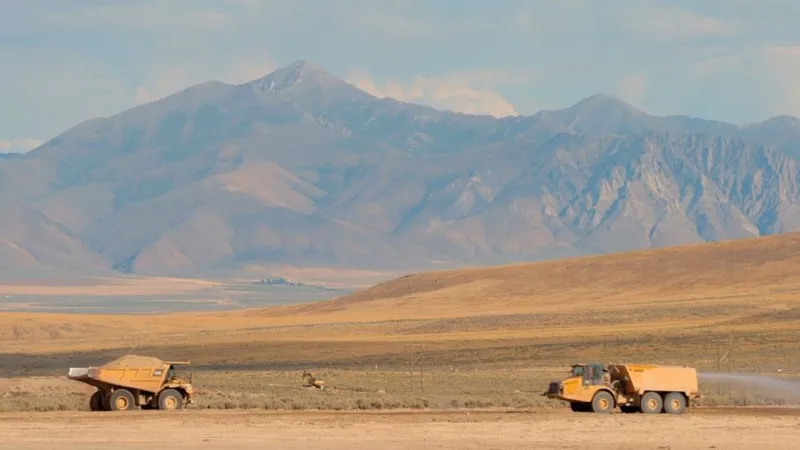Under Joe Biden, tor the first time, a federal permit for a new lithium mine has been approved for a Nevada project essential to his clean energy agenda.
This is despite vows by conservationists to sue over the plan, which they say will drive an endangered wildflower to extinction. According to reports, Ioneer Ltd’s mine will help expedite production of a key mineral in the manufacturing of batteries for electric vehicles at the center of the president’s push to cut greenhouse gas emissions, administration officials said Thursday in Reno.
Acting deputy interior secretary Laura Daniel-Davis said it’s “essential to advancing the clean energy transition and powering the economy of the future”.
“The process we have undertaken demonstrates that we can pursue responsible critical mineral development here in the United States, while protecting the health of our public lands and resources,” she said.
In the works for six years, construction of the Rhyolite Ridge mine should start next year in the high desert halfway between Reno and Las Vegas, the Australia-based Ioneer said.
Read also: Azerbaijan set for major fossil gas expansion
Production is scheduled to begin in 2028 at the mine, which should produce enough lithium for 370,000 vehicles annually for more than two decades, officials said. Worldwide demand for lithium is projected to have grown six times by 2030 compared with 2020.
“I can say with absolute confidence there are few deposits in the world as impactful as Rhyolite Ridge,” Ioneer executive chairperson James Calaway said Thursday.
“Today’s approval of Ioneer’s federal permit is the culmination of countless hours of work and a testament to our remarkable team’s dedication to developing and building one of the most sustainable mining projects in the country,” he said.
The interior department’s bureau of land management issued the permit after the US Fish and Wildlife Service (USFWS) concluded, in consultation with the bureau required under the Endangered Species Act, that the mine would not jeopardize the survival of Tiehm’s buckwheat.
Story was adapted from the Guardian.
